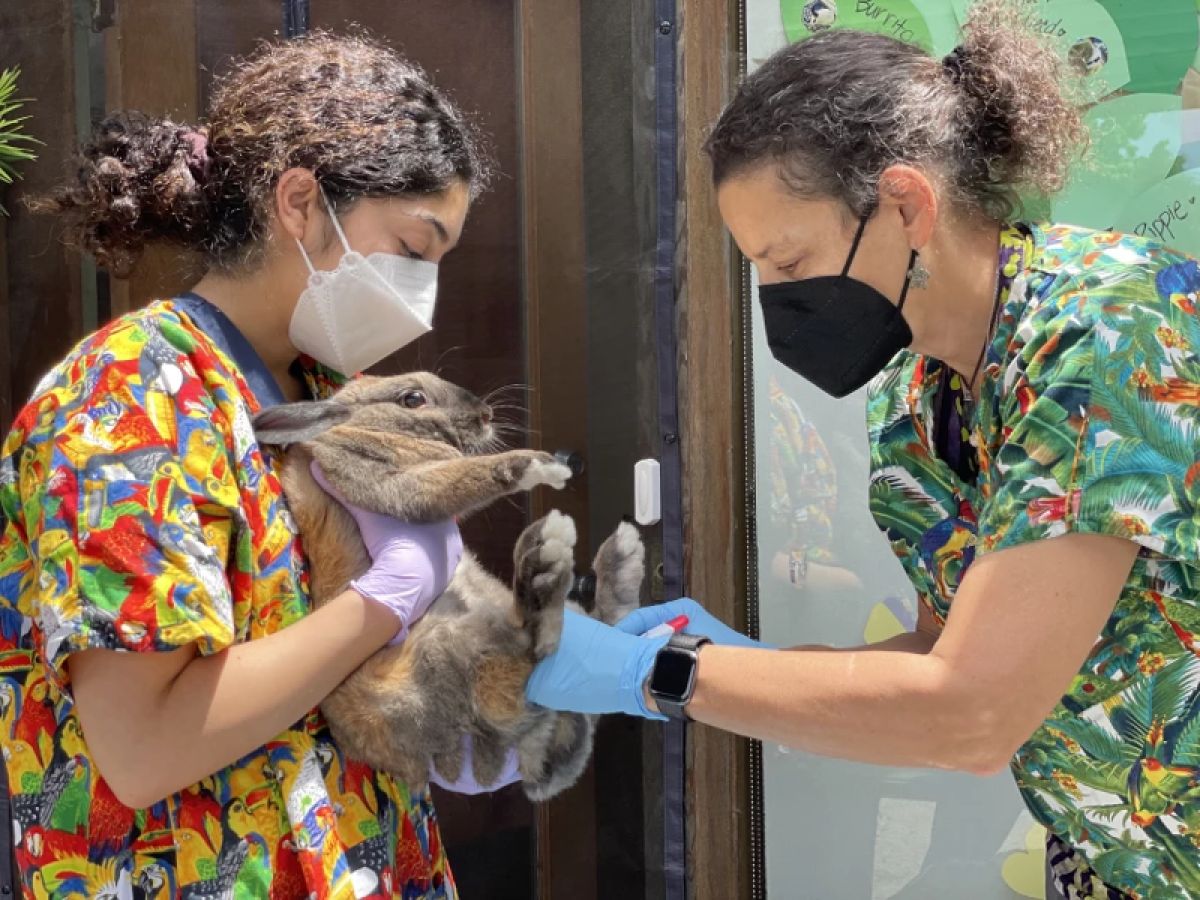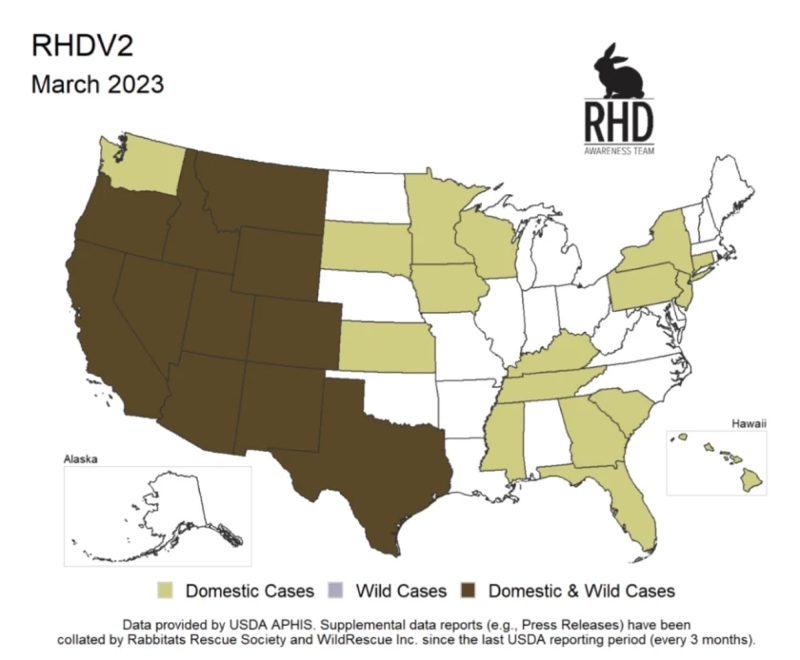
A veterinarian gives a rabbit a dose of the vaccine. Rabbit hemorrhagic disease—or RHDV2— is a highly transmissible virus affecting both wild and domestic rabbits. (The House Rabbit Society)
The Easter Bunny may want to get a vaccine this year — as a disease deadly to rabbits spreads throughout the U.S.
Rabbit Hemorrhagic Disease Virus Type 2—or RHDV2—is a viral disease that’s fatal to both domestic and wild rabbits. The latest strain was first detected in a jackrabbit in Palm Springs, California in March 2020. Since then it’s spread east to nearly half of U.S. states, including South Dakota, Minnesota, Iowa, Kansas and Wisconsin in the Midwest.
The highly contagious disease is hard to detect. The U.S. Department of Agriculture reports sometimes the only signs are sudden death or a bloody nose caused by internal bleeding.
For rabbits that are infected, most will die, according to Dr. Anthony Pliny, a veterinarian in Phoenix, Arizona.
“The virus will in the later stages induce a state where uncontrolled, unstoppable, bleeding occurs, and that will lead to death,” he said.
The good news is that there is a vaccine.
Edie Gower, the president of the House Rabbit Society, said that vaccinations are available at many veterinary offices and are the best way to keep rabbits safe.
“Pet rabbits can be vaccinated and should be vaccinated,” she said. “This will save their lives.”

RHDV2 is the first disease that veterinarians in the U.S. actively vaccinate pet rabbits against.
In 2020, the USDA began allowing RHDV vaccines to be imported from European manufacturers for emergency use in states with confirmed rabbit hemorrhagic cases. A year later, the department granted emergency-use authorization to Medgene, a South Dakota-based biotech company, for their RHVD2 vaccine.
Gary Bosch, a veterinarian and executive vice president at Medgene Laboratories, said the efficacy studies show that the vaccine can significantly prevent the likelihood that a rabbit succumbs to the virus.
“None of the rabbits in our vaccinated group died of rabbit hemorrhagic disease,” Bosch said. “But 69% of the rabbits in the unvaccinated group did.”
The vaccine is administered in two doses, with the second dose applied 21 days after the initial dose. Currently the vaccine is available in nearly every state except for Alaska, Maine, Massachusetts, New Hampshire and Vermont.
The RHDV2 virus is resistant to extreme temperatures and can spread through exposure to an infected rabbit or materials that have come in contact with an infected rabbit. Gower said the virus’ ability to persist in the environment is concerning.
“It can spread on agricultural items, through picking it up on your shoes, through the dogs and cats going outside and bringing it back into your house,” she said.
Despite being highly contagious, RHDV2 poses no known risk to humans or other animals.
This story was produced in partnership with Harvest Public Media, a collaboration of public media newsrooms in the Midwest. It reports on food systems, agriculture and rural issues. Follow Harvest on Twitter: @HarvestPM.













